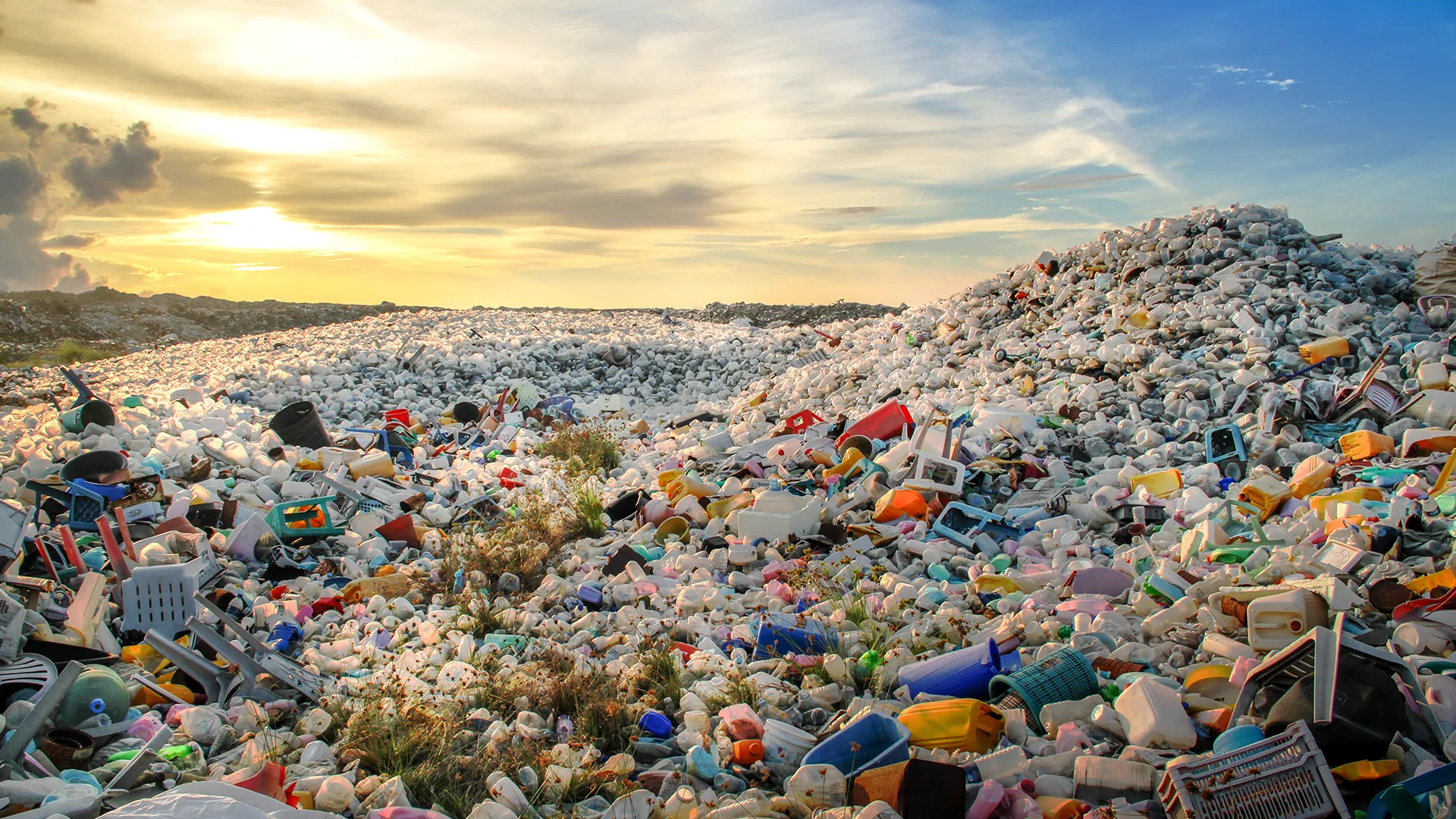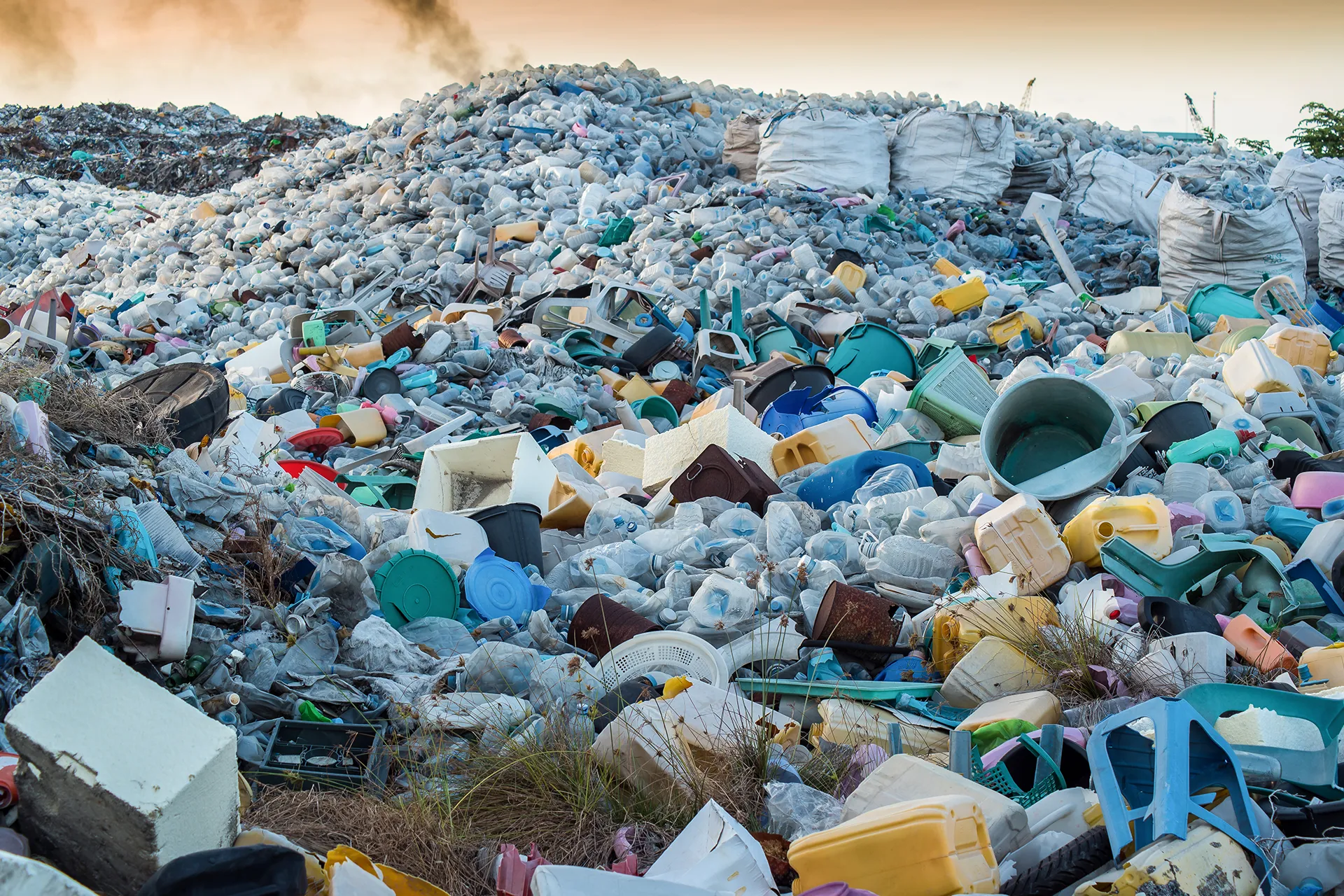
Why Some Biodegradable Plastics Only Break Down in Landfill Conditions
Not all biodegradable plastics behave the same way. Some require industrial composting, others begin degrading under natural outdoor conditions, and some, like those enhanced with additives such as EcoPure®, are specifically engineered to biodegrade only in biologically active landfill environments.
This approach may seem counterintuitive at first, but there’s a strong scientific and practical reason behind it.
What Is Landfill Biodegradation?
When biodegradable plastic is said to break down in landfill-like conditions, it means the material is engineered to respond only to the anaerobic (oxygen-free), microbe-rich environments found in modern landfills. These conditions are characterized by:
- Low oxygen levels
- High humidity
- Elevated temperatures
- High populations of anaerobic bacteria
The biological activity in these environments enables a slower, but effective microbial process that breaks down organic matter, including biodegradable plastic, if designed to respond to these triggers.

How Landfill-Biodegradable Plastics Are Different
Unlike compostable plastics, which break down in high-temperature aerobic environments (like industrial composting facilities), landfill-biodegradable plastics remain stable in most settings and begin to degrade only after disposal, specifically in landfills.
This process typically involves an additive, not a change in the base plastic resin. These additives alter the polymer structure to make it more accessible to microbial enzymes under the right conditions. However, they are inert during the product’s useful life, preventing premature degradation.
A well-known example of this approach is EcoPure®, an organic additive that enables traditional plastics to biodegrade in anaerobic landfill conditions. According to ASTM D5511 testing, this additive activates only when exposed to the right biological environment, avoiding unintended breakdown in storage or during product use.
Why Would You Want Plastic to Stay Intact Until Disposal?
While full degradation may seem like the ideal from an environmental standpoint, stability during a plastic product’s life cycle is often essential. Here’s why targeting biodegradation to landfills actually makes sense:
Preserves Product Functionality
Plastic is often used because it’s strong, waterproof, and durable. If a biodegradable plastic starts breaking down too early—on a store shelf, in a warehouse, or in a hot delivery truck—it can compromise product safety, shelf life, or usability.
Avoids Premature Degradation in Unintended Settings
Not all waste ends up in ideal composting environments. A product that starts to degrade in a home compost bin or worse—in the open environment—might not break down completely, leading to fragmentation or microplastic pollution.
Matches Real-World Waste Infrastructure
A significant portion of plastic waste still ends up in landfills. According to Eurostat and EPA data, landfills remain the most common end-of-life scenario for plastic in both Europe and the U.S., particularly for low-value or contaminated materials that are not economically recyclable.
Designing biodegradable plastics to break down in landfills addresses the environment where much of the plastic actually ends up.
EcoPure® as a Landfill Case Study
EcoPure® serves as a working example of this landfill-triggered model. The additive is blended into conventional plastics during production, creating conditions within the plastic that become susceptible to microbial attack in a landfill. It does not alter the resin’s appearance or strength, making it easy to implement without changing product performance or packaging behavior.
Test data using ASTM D5511 indicates that plastics containing EcoPure® can reach biodegradation levels exceeding 60–90%, depending on resin type and test duration. However, these results are contingent on being in the right conditions, not just being exposed to the outdoors.
Limited Biodegradability Is a Strength, Not a Weakness
The concept of biodegradation only in landfill conditions may seem like a compromise, but in reality, it’s a design choice based on real-world use, disposal behavior, and environmental protection. By ensuring that plastic behaves predictably during use but begins to degrade once landfilled, materials like those enhanced with EcoPure® represent a thoughtful, science-backed approach to managing plastic waste.
They don’t replace recycling or reduce the need for upstream waste prevention, but they do offer a practical, validated method to improve plastic’s environmental footprint where it currently matters most.


